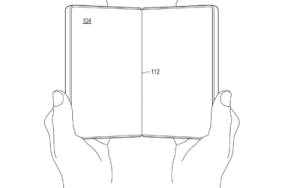In today's fast-paced world, cognitive function is more important than ever. While physical workouts receive considerable attention, the importance of exercising your brain is often overlooked. Just as lifting weights strengthens muscles, brain exercises are essential for sharpening focus and boosting memory.
Here are three science-backed brain exercises to help you unlock your mental potential:

Many underestimate the profound impact of meditation on both body and mind. This practice involves focusing the mind and cultivating present moment awareness. Meditation strengthens the prefrontal cortex and hippocampus, brain regions crucial for attention and memory.

Regular meditation can improve attention span and reduce stress, thereby supporting better memory. Some studies suggest that meditation may positively alter brain structure and function, although further research is needed.
To incorporate meditation into your daily routine, dedicate just 10-20 minutes each day. Find a quiet space, focus on your breath or a mantra, and gently redirect your attention when your mind wanders. Beginners can also utilize guided meditation apps for support.
Brain games and puzzles offer an engaging way to improve memory and boost focus. Puzzles that challenge your problem-solving skills can strengthen neural connections.

Activities such as Sudoku, crossword puzzles, and memory card games are linked to short-term memory enhancement and cognitive flexibility. These games train your brain to process and recall information more efficiently. A 2021 study revealed that brain training games can help manage age-related cognitive decline in older adults.
Set aside time each day, whether morning or evening, for a crossword puzzle, Sudoku, or a memory card game. Numerous online platforms and puzzle books are available to aid you in this practice.
The brain thrives on novelty. Learning a new language or musical instrument challenges the brain, forcing it to process and store new information. This process creates new neural pathways.

A 2014 study involving older adults found that learning a new and cognitively demanding skill, such as quilting or photography, significantly boosted their memory. Similarly, a 2019 review found that bilingualism strengthens the connectivity between different brain areas, potentially delaying and decreasing the risk of Alzheimer's and other forms of dementia.
Consider using language training apps, enrolling in a course, or picking up a musical instrument. Consistent practice, even for just 15-30 minutes daily, can yield remarkable results for your cognitive health.
Newer articles
Older articles
 Vitamin D Could Slash Tooth Decay Risk by 50%, Study Suggests
Vitamin D Could Slash Tooth Decay Risk by 50%, Study Suggests
 Indian Cricket Star Mukesh Kumar and Wife Divya Singh Announce Birth of Son
Indian Cricket Star Mukesh Kumar and Wife Divya Singh Announce Birth of Son
 Shubman Gill's Captaincy Under Fire: Bold Calls Needed After England Test Defeat
Shubman Gill's Captaincy Under Fire: Bold Calls Needed After England Test Defeat
 Microsoft Aims for Foldable Redemption with Novel Hinge Design to Rival iPhone and Android
Microsoft Aims for Foldable Redemption with Novel Hinge Design to Rival iPhone and Android
 Popular Finance YouTuber's Account Hacked, Bitcoin Scam Promoted: Security Lessons Learned
Popular Finance YouTuber's Account Hacked, Bitcoin Scam Promoted: Security Lessons Learned
 Esha Gupta Breaks Silence on Hardik Pandya Romance Rumors: 'We Were Just Talking'
Esha Gupta Breaks Silence on Hardik Pandya Romance Rumors: 'We Were Just Talking'
 Hollywood's Love Affair with India: Iconic Film Locations Revealed
Hollywood's Love Affair with India: Iconic Film Locations Revealed
 Rishabh Pant Aims to Surpass Virat Kohli in Test Century Tally During England Series
Rishabh Pant Aims to Surpass Virat Kohli in Test Century Tally During England Series
 Prithvi Shaw Credits Sachin Tendulkar's Guidance for Career Revival After Setbacks
Prithvi Shaw Credits Sachin Tendulkar's Guidance for Career Revival After Setbacks
 Ashada Gupt Navratri 2025: Unveiling Dates, Timings, Significance & Secret Rituals
Ashada Gupt Navratri 2025: Unveiling Dates, Timings, Significance & Secret Rituals